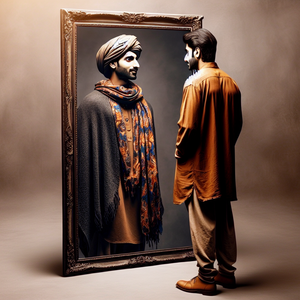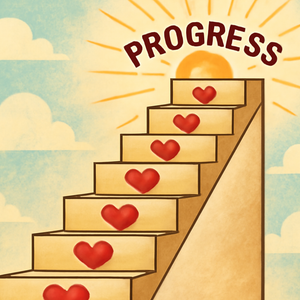The Hidden Talents: Unconventional Roles Behind Warner Bros. Hits

Sound designers are the architects of audio landscapes that enhance the emotional experience of a film or show. They meticulously create sound effects, ambiance, and even the auditory elements that define characters. For instance, in the creation of the iconic sound of the Batmobile in The Dark Knight, sound designers collaborated closely with the director to ensure that every rev and screech resonated with the film's tone. Their work is crucial in establishing mood and atmosphere, often elevating scenes beyond the visual spectacle. Without the skilled hands of sound designers, audiences might find themselves disconnected from the story, unable to feel the intensity of a climactic moment or the subtlety of a tender scene.
Sound Designers: Crafting the Audio Experience
Script supervisors play a pivotal role in maintaining continuity throughout the filming process. They track changes in the script, ensure that scenes match the director's vision, and take detailed notes on performances and technical aspects. This role became particularly significant during the filming of Harry Potter, where maintaining continuity across multiple films was essential to preserving the narrative's integrity. Their meticulous attention to detail ensures that viewers remain immersed in the story without distraction. Imagine the challenge of keeping track of a character's wardrobe, props, and even the position of their hair across different takes; script supervisors are the unsung heroes who tackle these challenges head-on.
Script Supervisors: The Guardians of Continuity
In an era where visual effects define the cinematic experience, VFX artists are the wizards who transform imaginative ideas into reality. Their work on films like Inception and Wonder Woman demonstrates how blending practical effects with CGI can create breathtaking visuals. These artists often work long hours, collaborating with directors and cinematographers to ensure that the final product not only looks stunning but also fits seamlessly into the narrative. The ability of VFX artists to bring fantastical elements to life—such as the stunning landscapes of Fantastic Beasts or the elaborate fight sequences in Aquaman—is vital to the storytelling experience, captivating audiences and immersing them in new worlds.
Visual Effects Artists: Bringing Imagination to Life
Post-production editors are the storytellers who sculpt the raw footage into a cohesive narrative. They work closely with directors to understand the pacing, tone, and flow of the film or show. For example, the editing team behind The Matrix was instrumental in building the film’s unique rhythm, utilizing innovative techniques to create its groundbreaking visual style. This role requires a deep understanding of storytelling, pacing, and technology, as editors often utilize advanced software to achieve their vision. The power of editing can transform a good film into a great one, making editors the silent storytellers who shape the audience's emotional journey.
Post-Production Editors: Shaping the Final Cut
While these roles may seem unconventional, they often serve as gateways to more prominent positions within the industry. Many successful directors and producers began their careers in lesser-known roles, gaining invaluable experience and insights that shaped their future projects. For instance, acclaimed director Peter Jackson started as a visual effects artist before moving on to direct major films like The Lord of the Rings. Furthermore, as the entertainment industry evolves, the demand for professionals in these unconventional roles continues to grow. With the rise of streaming platforms, the need for innovative sound design, seamless editing, and striking visual effects has never been higher. Those interested in pursuing careers in these fields can find ample opportunities to make their mark in the industry. Warner Bros. actively recruits talent for these roles, showcasing the importance of these positions in their productions.
The hidden talents behind Warner Bros. hits play an indispensable role in the storytelling process, often without the recognition they deserve. From sound designers and script supervisors to visual effects artists and post-production editors, each position contributes uniquely to the overall success of a production. As the industry continues to evolve, so do the pathways these roles offer to aspiring talent. By shining a light on these unconventional careers, we not only recognize their importance but also inspire the next generation of storytellers to explore the myriad opportunities available in the entertainment landscape. Whether you’re a budding artist or a seasoned professional, understanding and appreciating the breadth of talent behind the scenes is essential to fostering a vibrant and innovative industry. Embracing these hidden talents ensures that the magic of storytelling continues to thrive, capturing the hearts of audiences worldwide.
Sound Designer
Warner Bros., Disney, Netflix
Core Responsibilities
Create and manipulate sound effects, ambiance, and character audio to enhance the storytelling experience in films and television.
Collaborate with directors and other production staff to ensure sound aligns with the visual narrative and emotional tone of scenes.
Oversee sound mixing and editing processes during post-production.
Required Skills
Proficiency in audio editing software (e.g., Pro Tools, Logic Pro).
Strong understanding of acoustics, sound theory, and audio post-production techniques.
Creative problem-solving skills to develop unique soundscapes.
Script Supervisor
Universal Pictures, Sony Pictures, HBO
Core Responsibilities
Maintain continuity in filming by tracking script changes, scene details, and actor performances.
Create detailed reports on shooting days to assist in post-production and ensure consistency across different takes.
Communicate closely with directors and cinematographers to uphold the creative vision of the project.
Required Skills
Exceptional organizational and multitasking abilities.
Strong attention to detail and memory for continuity aspects (e.g., wardrobe, props).
Proficiency in script breakdown and shot logging.
Visual Effects Artist
Industrial Light & Magic, Weta Digital, Framestore
Core Responsibilities
Develop and execute visual effects for films and television series, blending CGI with live-action footage.
Collaborate with directors and cinematographers to design effects that enhance the storyline and visual aesthetics.
Utilize software like Adobe After Effects, Nuke, and Maya to create stunning visual elements.
Required Skills
Advanced knowledge of 3D modeling and animation techniques.
Strong artistic skill and an eye for detail in visual storytelling.
Ability to work under tight deadlines and adapt to evolving project requirements.
Post-Production Editor
Paramount Pictures, Amazon Studios, Lionsgate
Core Responsibilities
Edit raw footage into a cohesive narrative, ensuring the pacing and flow align with the director's vision.
Work with sound designers and visual effects teams to incorporate audio and graphics seamlessly into the final cut.
Use editing software (e.g., Avid Media Composer, Adobe Premiere Pro) to apply necessary edits and effects.
Required Skills
Strong storytelling skills and a deep understanding of film language and structure.
Proficiency in video editing software and familiarity with color grading and sound mixing.
Excellent communication skills to collaborate with directors and producers effectively.
Production Coordinator
20th Century Studios, CBS, Netflix
Core Responsibilities
Assist in the logistical planning and execution of film and television productions, from pre-production through post-production.
Coordinate schedules, manage budgets, and liaise between different departments to ensure smooth operations on set.
Organize documentation, including contracts, call sheets, and production reports.
Required Skills
Strong organizational and project management skills.
Excellent communication abilities to interface with various stakeholders, including crew and vendors.
Familiarity with production software and scheduling tools.


